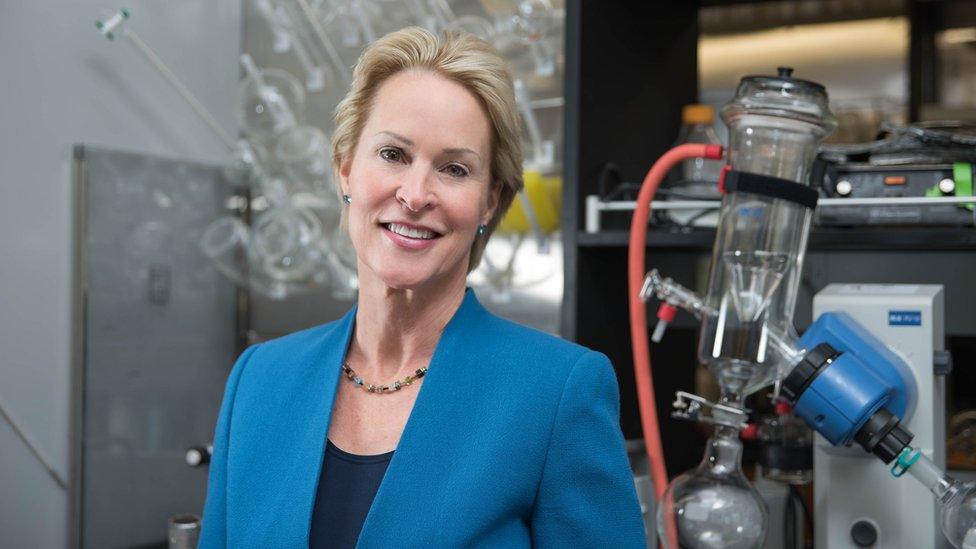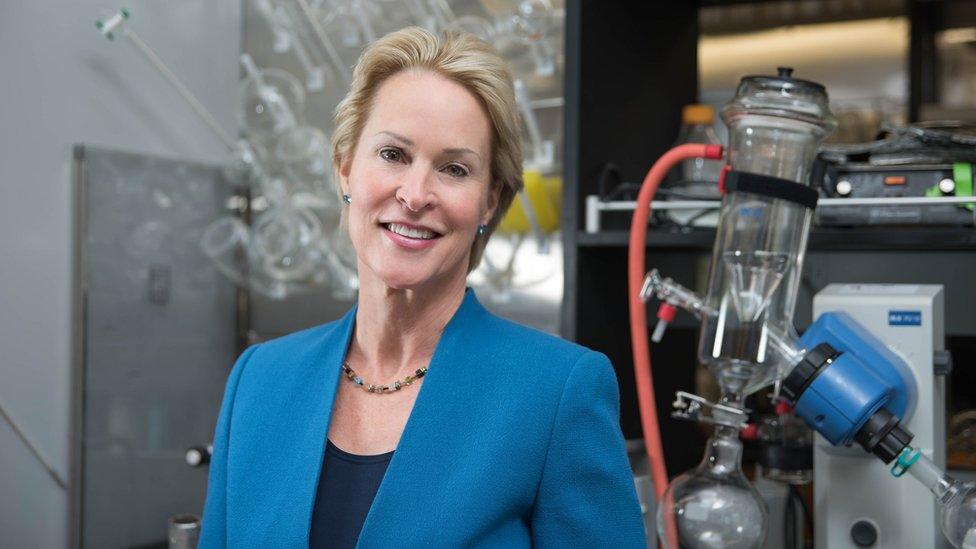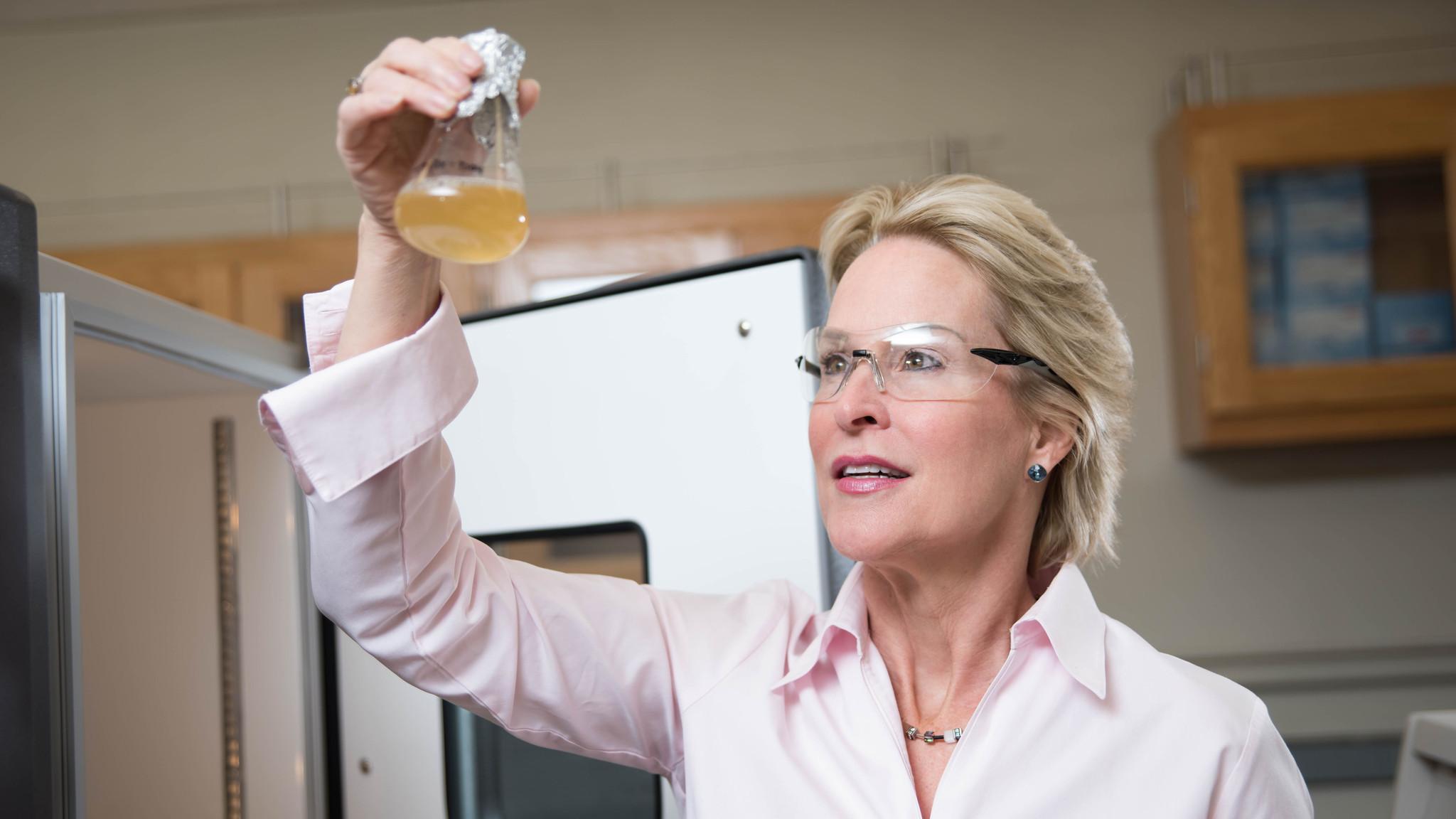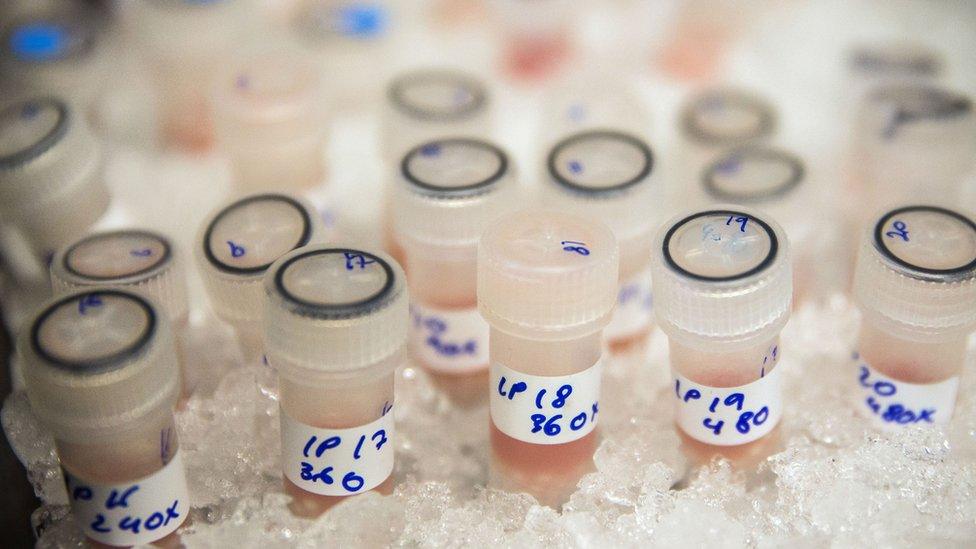Nobel Prize-winning scientist Frances Arnold retracts paper
- Published

Prof Arnold works in the department of chemical engineering at Caltech
American scientist Frances Arnold, who won the Nobel Prize for chemistry, has retracted her latest paper.
Prof Arnold shared the award with George P Smith and Gregory Winter for their research on enzymes in 2018.
A subsequent paper on enzymatic synthesis of beta-lactams was published in the journal Science in May 2019.
It has been retracted because the results were not reproducible, and the authors found data missing from a lab notebook.
Reproduction is an essential part of validating scientific experiments. If an experiment is a success, one would expect to get the same results every time it was conducted.
Prof Arnold came forward with the news herself on Twitter on 2 January.
"For my first work-related tweet of 2020, I am totally bummed to announce that we have retracted last year's paper on enzymatic synthesis of beta-lactams. The work has not been reproducible," she tweeted.
"It is painful to admit, but important to do so. I apologize to all. I was a bit busy when this was submitted, and did not do my job well."
Allow X content?
This article contains content provided by X. We ask for your permission before anything is loaded, as they may be using cookies and other technologies. You may want to read X’s cookie policy, external and privacy policy, external before accepting. To view this content choose ‘accept and continue’.
That same day, Science published a note outlining why it would be retracting the paper, which Prof Arnold co-authored with Inha Cho and Zhi-Jun Jia.
"Efforts to reproduce the work showed that the enzymes do not catalyze the reactions with the activities and selectivities claimed. Careful examination of the first author's lab notebook then revealed missing contemporaneous entries and raw data for key experiments. The authors are therefore retracting the paper."
The announcement is the latest example of the "reproducibility crisis" facing the sciences.
In October 2018, the journal Nature wrote online that there was "growing alarm about results that cannot be reproduced", external.
An earlier survey conducted by the journal found that more than two-thirds of researchers had tried and failed to reproduce another scientist's experiments, external.
Reaction to Prof Arnold's tweets was mostly positive, however, as her colleagues commended her honesty.
"Can I please express my respect for you bringing this to everyone's attention. This shows that anyone can make an honest mistake and acting to correct that is the best response. Thank you," wrote Dominique Hoogland, a researcher at King's College London.
Prof Arnold is a widely respected chemical engineer, whose work pioneering "directed evolution" won her the €1m (£0.8m) Millennium Technology Prize in 2016.
She is also on the board of directors for Google's parent company Alphabet.
- Published24 May 2016

- Published3 October 2018

- Published22 February 2017

- Published16 February 2019
